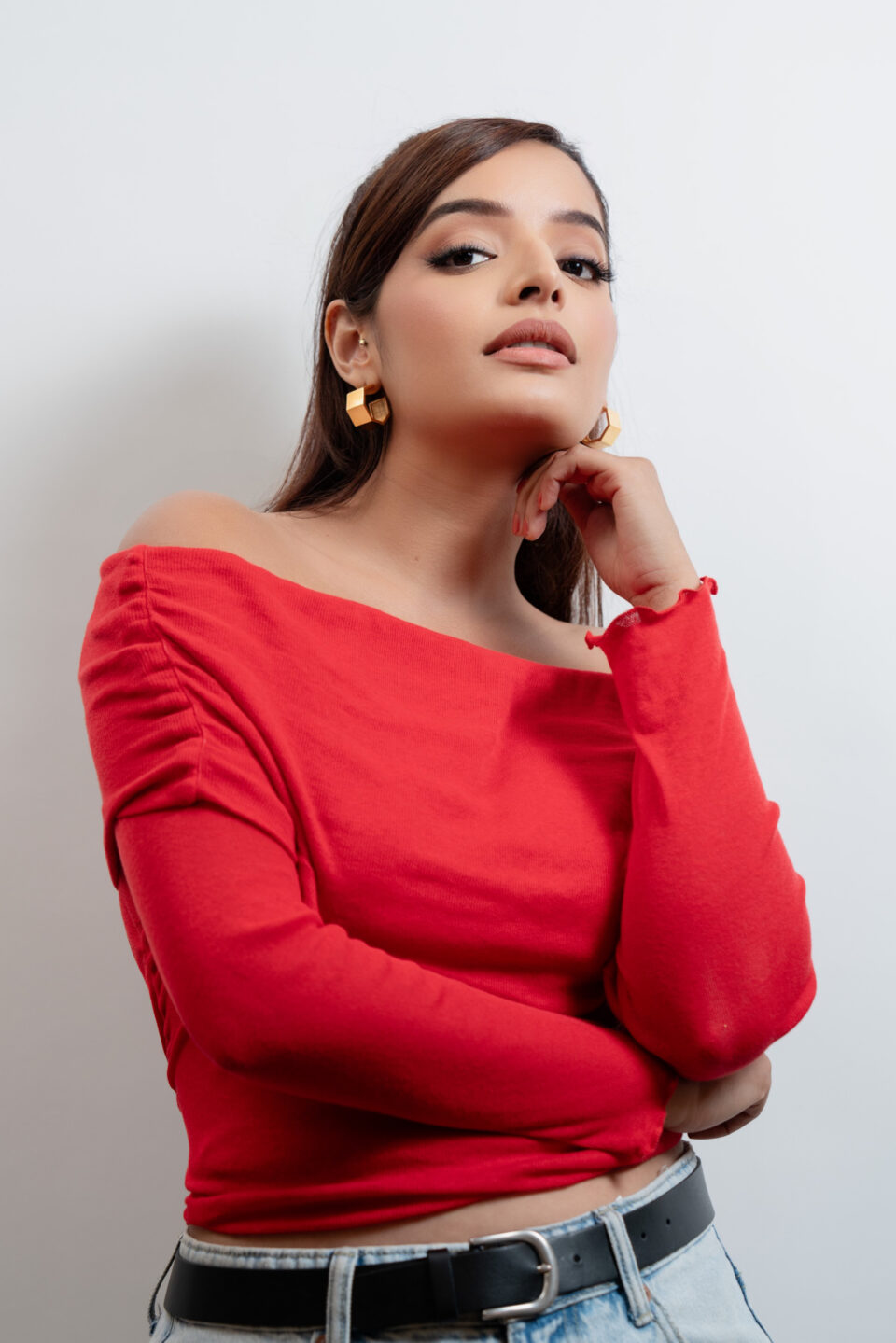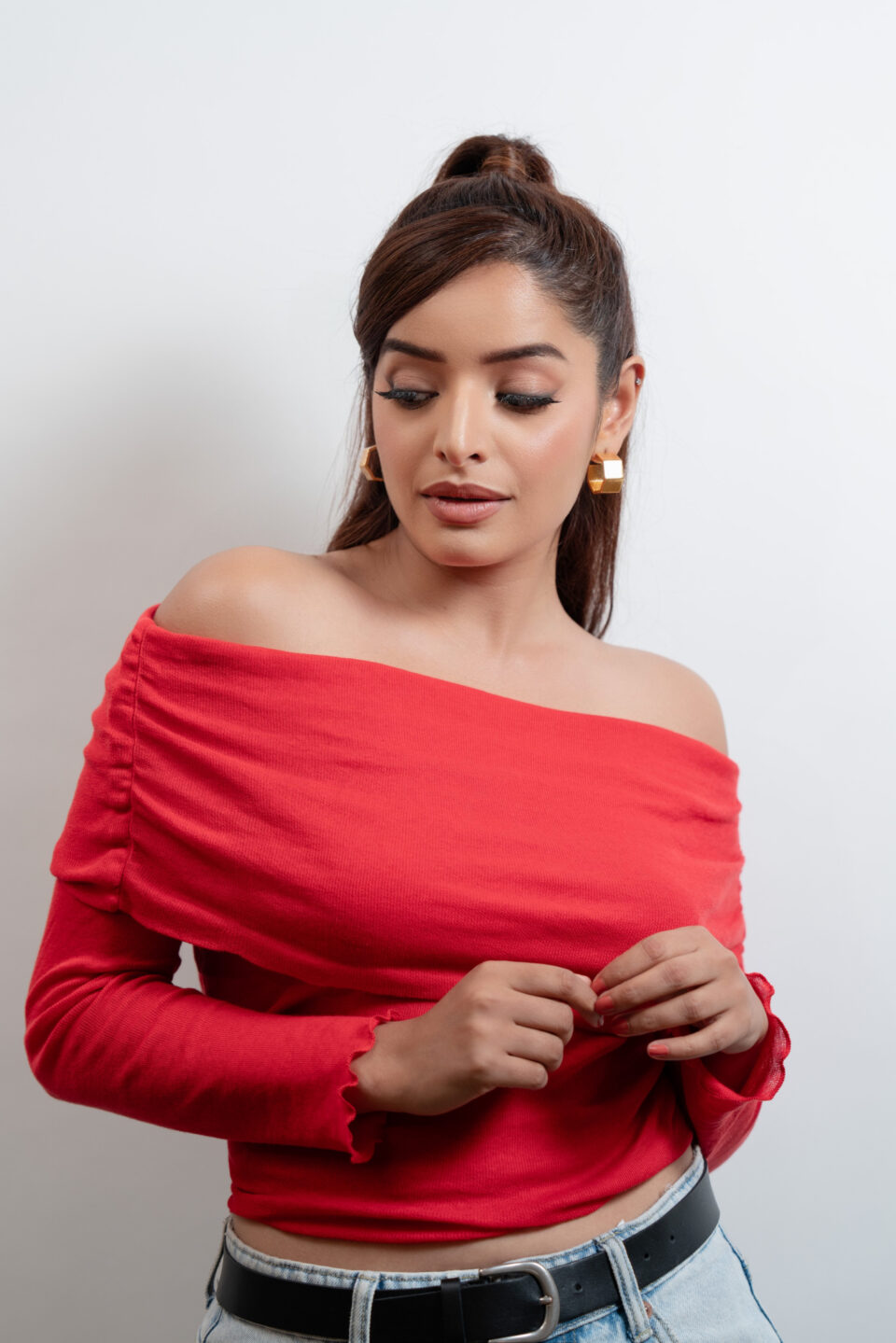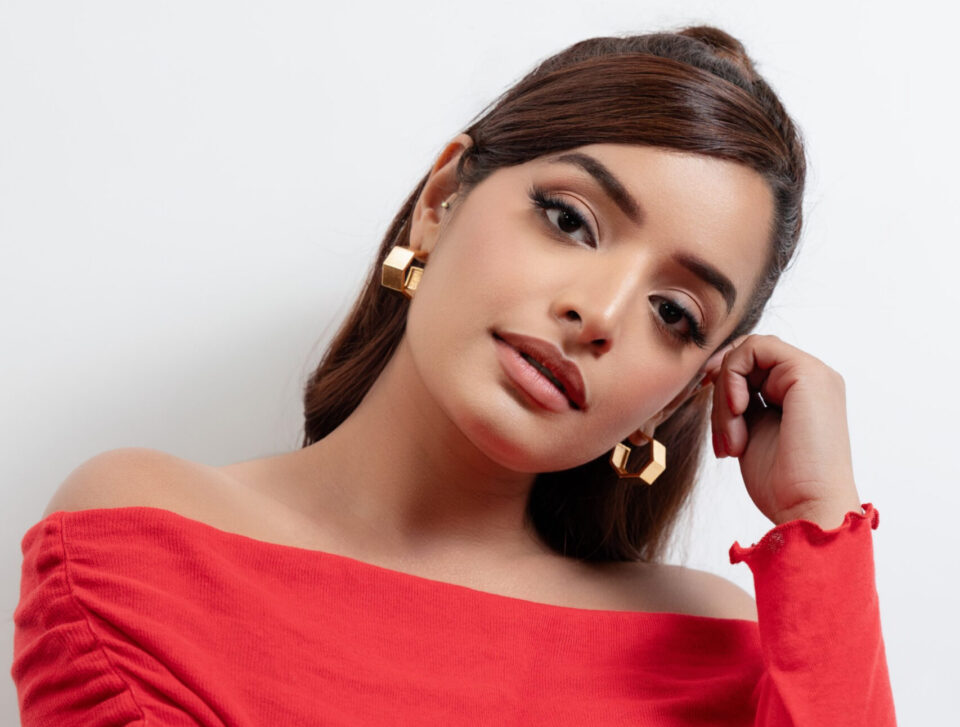
Lisa Mishra
She has risen to rearrange the status quo
It’s increasingly difficult to ignore Lisa Mishra, an artist known for her brilliant vocals and innovative approach to music. From her latest single release, “Saza,” to her collaborations with emerging talents, Mishra discusses her journey from Chicago to the global music scene, reflecting on the influence of her experiences and the integration of technology in music production. With a focus on authenticity and innovation, she shares her vision for the future of her music and the industry at large.
Rolling Stone India: Lisa, first and foremost, let me extend my heartfelt congratulations on your latest release, “Saza,” with Warner Music India. The vocals were impeccably recorded, adding a distinct quality to the song. Could you delve deeper into the creation of this track and shed light on why it resonated with REPRESENT’s founder, Ayushman Sinha?
Lisa: Thank you so much. “Saza” holds a deeply personal significance for me. Drawing from over 15 years of experience in the industry, I wanted this song to be a true representation of myself as an artist. The decision to seamlessly blend English and Hindi was deliberate, aiming for a universal appeal that encapsulates raw emotions. I believe Ayushman connected with the relatable lyrics and the authenticity that shines through in the composition.
Your journey from Chicago to collaborating with renowned artists like Chance the Rapper has undoubtedly shaped your approach to music. How has this experience influenced your artistic vision?
Collaborating with artists like Chance and being exposed to top-tier production has been incredibly influential in shaping my artistic vision. It broadened my horizons and allowed me to explore different sounds and styles, which is reflected in my latest album.
We graduated high school the same year and they just needed a backing vocalist one day and I came into the studio and the first song I ever recorded in a professional music studio was all we got from Coloring Book, the Grammy winning album. And the song obviously features Kanye West. And I can’t believe my first ever contribution to a professionally recorded song with a writing credit because I ended up working on the melodies as well.
It happens to be with Chance and Kanye. So I feel very lucky and I feel very grateful. But that also meant I was in the midst of some really incredible producers at that time who are the most familiar people in music production nowadays.
One of those people was this really great producer named Carter Lang and he’s sort of the sound of… He is the sound of SZA, who’s my favorite artist. And a lot of my artistry and what I’m trying to do in India with music in Hindi is inspired by two people, Kehlani and SZA. And Carter’s worked with both of them.
And over the years, just hearing the music he was making and getting exposed to the art these women were making, I really pulled a lot from there to make my album. And SZA, this song, the name is obviously inspired by her. It’s like my tip of the hat.

Your approach to songwriting is fascinating, starting with emotions and visuals before crafting melodies and lyrics. Could you walk us through your creative process and what inspires this unique approach?
Absolutely. My creative process is deeply personal and unconventional. I often begin with emotions and visuals, allowing them to guide the direction of the song. It’s about capturing the essence of a feeling or a moment and translating it into music. This approach ensures that my music remains authentic and true to myself as an artist.
Transitioning from Bollywood to non-film music must have presented its own set of challenges. How do you navigate the industry’s expectations while staying true to your artistic vision?
Transitioning from Bollywood to non-film music has indeed been a journey of self-discovery. It’s about finding a balance between industry expectations and staying true to my artistic vision. I strive to break barriers and challenge norms, paving the way for solo, non-film female artists to shine on a global stage.
What are your thoughts on the integration of AI and technology in music production? Do you see it as a tool for innovation or a potential threat to the authenticity of music?
The integration of AI and technology in music production is a double-edged sword. While it can undoubtedly be a powerful tool for innovation and efficiency, there’s also a risk of it diluting the authenticity and soulfulness of music. As a purist, I believe that music is best driven by human emotion and creativity. While technology has its place, it’s crucial to maintain a balance and preserve the integrity of art.
It’s lame, but I want art to be human and I want it to be… I know AI is something that we created. Of course, we can always argue in circles about that. But I really think music is this beautiful, beautiful thing that is best driven by us. Of course, there’s digital elements. That’s just how music has evolved. But to wholly hand off the task to AI, I just can’t imagine how sad that would be.
We can’t replicate human emotion until we get into supra AI, right? But I just want us to be purists about music. It’s this beautiful, beautiful, wholesome space. And we’re already seeing it, unfortunately, in the lyrics that are being turned out by AI that are being put into songs. And I know it sounds like a fun cheat code, but at the end of the day, it’s just sad to me. I want us to be able to do these things ourselves. It’s the same way I feel about using iterations of songs again and again.

Your collaborations with emerging talents like beBhumika and Rizzy Rico have been both exciting and inspiring. What do you find most rewarding about working with young artists, and how do they influence your own creative process?
Lisa: Working with emerging talents like Bhumika and Rizzy Rico has been incredibly rewarding. It’s inspiring to see their fresh perspectives and innovative ideas. Collaborating with young artists not only provides me with new insights but also pushes me to explore new horizons creatively. They bring a unique energy and enthusiasm to the table, which fuels my own creativity and keeps me motivated to continue pushing boundaries.
Lastly, where do you envision your career in the next few years? What are your aspirations for the future of your music?
In the next few years, my goal is to see a solo, non-film female song top the charts, both domestically and globally. I want to continue pushing boundaries and inspiring others to embrace their authenticity in music. My aspirations for the future of my music are rooted in authenticity and innovation. I hope to continue creating music that resonates with audiences on a profound level while also challenging the status quo and pushing the boundaries of what’s possible in the industry.




